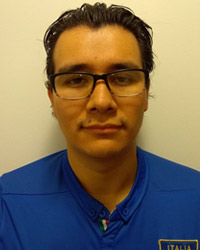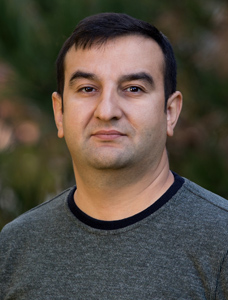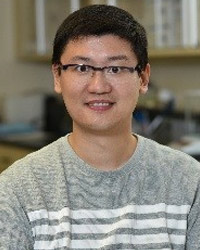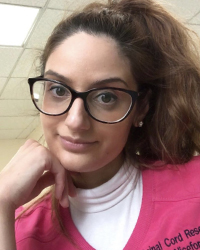
dg679@drexel.edu
Education:
PhD in cellular and molecular biology at CINVESTAV of the National Polytechnic Institute (Mexico)
Bionic engineering at National Polytechnic Institute (Mexico)
Postdoctoral fellow in Kimberly Dougherty’s Lab in the Department of Neurobiology and Anatomy at Drexel University College of Medicine
Research interests:
Plasticity of the spinal locomotor circuitry after spinal cord injury and rehabilitation therapies.
Research overview:
My current research in Kimberly Dougherty Lab is focusing in the plasticity of rhythm generating interneurons after spinal cord injury and after therapies including treadmill training and epidural stimulation. My particular interest is to understand the serotonergic modulation and sensory afferent inputs to rhythm generating interneurons, the plastic changes following spinal cord injury and therapies to enhance locomotor. My research involves electrophysiological and behavioral techniques to determine plastic changes after spinal cord injury and rehabilitation therapies.
Back to Top

kk3482@drexel.edu
Koray earned his PhD degree in molecular biology, genetics and biotechnology at Istanbul Technical University in 2021. At the beginning of his PhD, he studied transcriptional regulation of Spastin and Katanin. Additionally, during his PhD, besides generating induced pluripotent stem cell lines of rare neurodegenerative diseases, he also conducted genetic research to identify disease associated mutations and studied their functional relevance with the diseases. He joined the Baas Lab as a postdoc in September 2021, where he will investigate the role of tau in Gulf War Illness, as well as the molecular basis of tau’s role in regulating microtubule stability in neurons.

kk3478@drexel.edu
Kurt (Kurtulus) has a computer science background with a BSc from the University of Edinburgh (UK), MSc from Ankara University (Turkey) and PhD from Bilkent University (Turkey). He joined the Ausborn Lab as a postdoctoral researcher in computational neuroscience in September 2021 while on sabbatical leave from Ankara University, where he has been working as an instructor for 14 years. Currently, his research focuses on the visual sensorimotor integration in Drosophila (fruit fly). More broadly, he is interested in understanding how biological systems compute.

jl3933@drexel.edu
Jun Liu, PhD, is a postdoctoral researcher in the Department of Neurobiology & Anatomy at Drexel University College of Medicine. He has worked in the lab of Dong Wang, PhD, since October 2017.
Research interests:
Neural ensemble dynamics underlying learning and memory; fear and anxiety; optogenetics; imaging.
Research overview:
The hippocampal/parahippocampal region and the amygdala nuclei play a pivotal role in emotion, learning and memory. These related brain circuits are also involved in mnemonic dysfunctions associated with neuropsychiatric and neurological diseases, such as posttraumatic stress disorder (PTSD) and excessive anxiety. Dr. Liu is interested in understanding the underlying neural ensemble dynamics at circuit level by using multidisciplinary and integrated experimental approach in mice, including in vivo electrophysiology, optogenetics, imaging, physiological markers, and behavioral techniques.
Back to Top

an675@drexel.edu
Education:
Alessia graduated with her BSc in biological sciences from Sapienza University of Rome (Italy) in 2013. She received her master’s in biology for molecular, cellular and pathophysiological research summa cum laude from Roma Tre University of Rome (Italy) in 2016 and her PhD in molecular and cellular biology in January 2020, also at Roma Tre University of Rome. Alessia joined the Lane Lab as a postdoc in March 2020.
Research interests:
Spinal cord injury, induced pluripotent stem cells (iPSCs), embryonic stem cells (ESCs), reprogramming, cell transplantation, neurons, neuroplasticity
Research overview:
Building on her experience in human stem cells culture and cellular engineering, Alessia is now studying cellular therapies for repair following spinal cord injury (SCI). After traumatic SCI, gliosis and tissue scarring contribute to the accumulation of reactive astrocytes at the injury that prevent significant endogenous repair. Using a rat model of cervical SCI, she is developing reprogramming methods to convert the astrocytes into neurons in an effort to promote repair.
Back to Top
st3247@drexel.edu
Shravan Tata Ramalingasetty is a postdoctoral fellow in the Danner Lab.